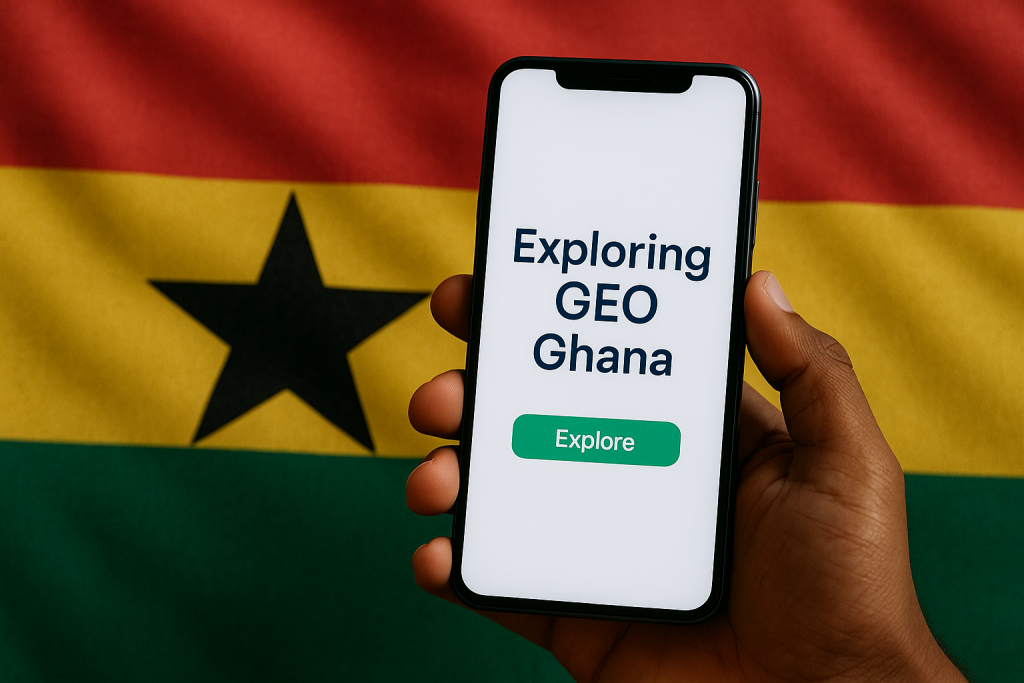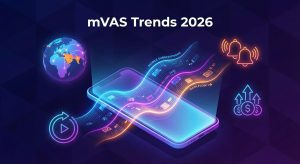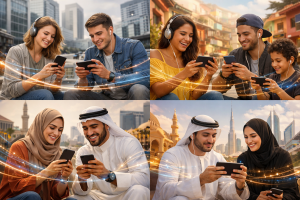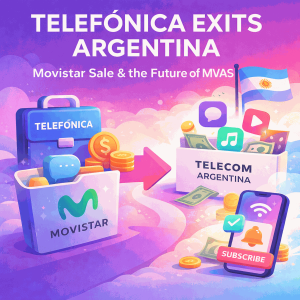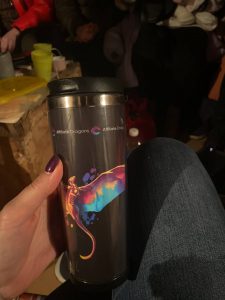Introduction
Ghana is undergoing a rapid digital transformation, establishing itself as a burgeoning digital-first economy with substantial opportunities for affiliate marketing. This evolution is fundamentally supported by a population increasingly integrating mobile technology into their daily lives for communication, commerce, and financial transactions. The sheer scale of this shift is evident in the financial sector, where the total value of transactions conducted via mobile devices experienced an impressive surge of 51.76%, escalating from GH¢1.99 trillion in 2023 to GH¢3.02 trillion (approximately $196.7 billion) in 2024. This dramatic increase underscores a robust and expanding digital payment ecosystem within the country.
The significant growth in mobile transaction value and volume indicates a high degree of consumer comfort and trust in digital financial services accessed through mobile devices. This suggests a market that is not merely adopting digital tools but actively embedding them as primary mediums for economic activity. Such a trend implies that Ghanaian consumers are confident in the security and convenience offered by these platforms, a foundational element for the success of any digital commerce, including affiliate marketing initiatives. For affiliate marketers, this translates into a highly receptive audience for mobile-centric offers, particularly those that can be monetized through mobile payment solutions. The demonstrated ease with which consumers engage in mobile transactions substantially reduces a common barrier to conversion often observed in less digitally mature markets.
Central to Ghana’s digital transformation is pervasive mobile connectivity. In early 2025, Ghana recorded 38.3 million cellular mobile connections, equating to an impressive 110% of the total population, which highlights widespread access to mobile services. A critical aspect of this connectivity is that 93.4% of these mobile connections are classified as “broadband,” enabling access via 3G, 4G, or 5G networks, thereby supporting richer and more complex digital experiences. This ubiquitous mobile access, coupled with high broadband penetration, directly fuels the demand for Mobile Value-Added Services (mVAS). These services are increasingly becoming indispensable to daily life, spanning a wide array of functions from entertainment to essential financial utilities. The combination of high mobile penetration and widespread broadband access signifies that the Ghanaian populace is not just connected, but also well-equipped for sophisticated digital engagement. This environment is highly conducive to the consumption of data-intensive mVAS and supports intricate online interactions. Consequently, affiliate marketers are presented with a compelling directive to design campaigns that leverage rich media, such as video and interactive content, and to target a broad mobile audience. The pervasive nature of mobile connectivity necessitates a mobile-first strategy across all facets of campaign design and execution, from the initial ad creatives to landing page optimization, to maximize engagement and conversion potential.
Ghana’s Mobile Telecommunications Landscape
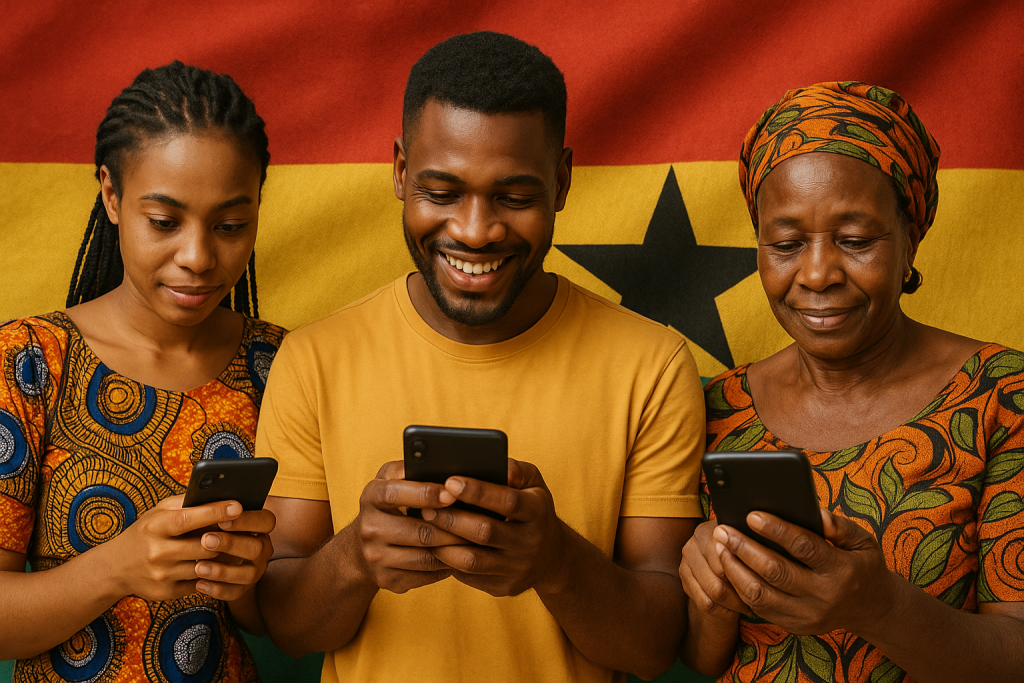
Market Size, Growth Trajectory, and Key Drivers
The Ghanaian telecom market demonstrates consistent growth, reflecting a fundamental shift in mobile usage towards data and advanced services. Valued at $1.09 billion in 2025, the market is projected to expand at a Compound Annual Growth Rate (CAGR) of 1.12% from 2025 to 2033. Another assessment places the market value at $2.5 billion in 2024, with an anticipated 8% CAGR over the subsequent five years, reaching approximately $3.7 billion by 2029.
This expansion is primarily propelled by increasing mobile penetration, rising smartphone adoption, and a burgeoning demand for data services. The market is experiencing a significant surge in demand for data packages, a trend fueled by the widespread adoption of mobile money, increased social media engagement, and growing reliance on internet-based services, including e-commerce and entertainment. Further accelerating this growth are the ongoing expansion of 4G networks and the imminent rollout of 5G infrastructure, which promise enhanced network coverage and higher data speeds. Government initiatives aimed at fostering digital inclusion also play a pivotal role in bolstering this market expansion.
A comparison between the overall telecom market’s CAGR (ranging from 1.12% to 8%) and the mobile money market’s CAGR (an impressive 18.24%) reveals a significant trend. While the foundational telecommunications infrastructure is growing steadily, the value-added services layer, particularly financial services, is experiencing the most dynamic and rapid expansion. This disparity points to a strategic evolution in consumer spending and a concentrated focus by Mobile Network Operators (MNOs) on these high-growth segments. MNOs are actively investing in 5G technology to support a data-intensive future, confirming this strategic direction. For affiliate marketers, this market evolution suggests a compelling need to align strategies by prioritizing offers that leverage high data consumption, such as streaming, gaming, or educational content, and, crucially, those that seamlessly integrate with mobile money payment flows. This targeted approach ensures that campaigns tap into the most active and rapidly expanding segments of Ghana’s digital economy.
Dominant Mobile Network Operators (MNOs)
The Ghanaian telecom market is characterized by a moderate concentration, with major players such as MTN Ghana, Vodafone Ghana, AirtelTigo Ghana (AT Ghana), and Globacom Limited dominating the competitive landscape. MTN Ghana and Vodafone Ghana hold particularly significant market shares, while smaller entities like AT Ghana and Globacom Limited also contribute to market dynamism.
These MNOs are engaged in vigorous competition for market share, employing aggressive pricing strategies, extensive network expansion, and the introduction of innovative service offerings, with a particular emphasis on data and mobile financial services. Substantial investments are being channeled into infrastructure development. For instance, MTN Ghana is on course to invest 1 billion in its network by 2026.[span_60](start_span)[span_60](end_span) A significant development occurred in May 2024 with the formation of Next-Gen InfraCo (NGIC), a shared infrastructure company designed to accelerate 5G rollout, further bolstered by a partnership with Reliance Industries Ltd (RIL) to introduce high-speed 5G services in Ghana.[span_37](start_span)[span_37](end_span) Furthermore, Ghanaian Telcos, including MTN, Telecel, and AT, collectively committed to investing US150 million in network upgrades in 2025.
The substantial investments by MNOs in 4G/5G infrastructure and network enhancements demonstrate a proactive response to the escalating demand for high-speed data and advanced mobile services. This commitment ensures a continuously improving technical environment, which is essential for the delivery of rich digital content and sophisticated mVAS. These investments signal a robust and future-proofed network, capable of supporting the interactive and data-intensive experiences that many mVAS offers require. For affiliate marketers, this implies a strategic imperative to prioritize campaigns that perform optimally on the networks of these dominant MNOs, as they collectively serve the majority of the connected audience. Moreover, the ongoing 5G rollout indicates future opportunities for highly data-intensive or real-time mVAS offers, such as cloud gaming, advanced streaming, or IoT-related services, which affiliates can strategically prepare to leverage.
The following table outlines the key mobile network operators in Ghana:
| Operator Name | Market Presence/Dominance | Strategic Focus/Key Initiatives | Recent Investments (e.g., 2025) | | :— | :— | :— | :— | | MTN Ghana | Dominant | Aggressive pricing, network expansion, innovative service offerings, focus on data & mobile financial services, 5G rollout | $1 Billion by 2026 (network) , Part of $150M combined in 2025 (network upgrades) | | Vodafone Ghana | Dominant | Aggressive pricing, network expansion, innovative service offerings, focus on data & mobile financial services | Part of $150M combined in 2025 (network upgrades) | | AirtelTigo Ghana (AT Ghana) | Competitive landscape contributor | Aggressive pricing, network expansion, innovative service offerings, focus on data & mobile financial services | Part of $150M combined in 2025 (network upgrades) | | Globacom Limited | Competitive landscape contributor | Aggressive pricing, network expansion, innovative service offerings, focus on data & mobile financial services | Not specified in provided data |
Internet Penetration and Usage
Ghana’s internet penetration rate stood at 69.9% of the total population at the beginning of 2025, with 24.3 million internet users. The number of internet users increased by 446 thousand, representing a 1.9% growth, between January 2024 and January 2025. Despite this significant penetration, 10.5 million people, or 30.1% of the population, remained offline at the start of 2025, indicating a substantial untapped potential for further digital inclusion.
Internet connection speeds are also improving, with the median fixed internet download speed in January 2025 recorded at 46.16 Mbps, a notable increase of 37.4% over the preceding twelve months. Social media adoption is a prominent trend, with 7.95 million active social media user identities in January 2025, accounting for 22.9% of the total population, and showing a 7.4% increase from early 2024. Facebook’s advertising reach alone encompassed 32.7% of the local internet user base in January 2025.
The existence of a substantial “offline” population alongside high mobile broadband penetration suggests that while the immediate opportunity for digital services is vast, current affiliate strategies should primarily target the already connected and digitally active segment. This approach offers more efficient immediate conversions. However, this offline segment represents a long-term growth demographic that is gradually shrinking, indicating future expansion of the addressable market for mobile-first services. Given the significant user bases and growth on social media platforms like Facebook and YouTube, affiliate marketers are well-advised to leverage these channels for audience targeting and content distribution. Campaigns should be designed to be accessible and engaging for mobile internet users, optimizing for varying connection speeds and device capabilities to capture the broadest possible audience.
The mVAS Ecosystem in Ghana: Opportunities for Affiliates
Defining Mobile Value-Added Services (mVAS) in the Ghanaian Context
The definition of Value-Added Services (VAS) has evolved considerably in the telecommunications industry. Historically, VAS referred to non-core services beyond standard voice calls and fax transmissions, encompassing services like SMS, MMS, and data access. However, in recent years, SMS, MMS, and basic data access have transitioned into core services. Consequently, mVAS now typically denotes premium-charged content and services that genuinely add value to the standard mobile offering, thereby encouraging subscribers to increase their phone usage and, in turn, driving up the Average Revenue Per User (ARPU) for mobile operators.
A key characteristic of these services in Ghana is that they are frequently billed directly by mobile carriers, bypassing traditional payment methods such as credit cards or PayPal, which significantly enhances their accessibility. This evolution signifies a maturing mobile market where basic connectivity is assumed, and consumer demand is shifting towards richer, more specialized digital experiences. The prominence of direct carrier billing (DCB) directly addresses the financial inclusion gap, enabling broad access to these premium services even for the unbanked population. This creates a substantial addressable market for mVAS. For affiliate marketers, this market dynamic implies a strategic focus on promoting subscription-based mVAS offers that align with these evolving consumer demands for premium content, spanning entertainment, education, and lifestyle. Leveraging the simplicity and accessibility of direct carrier billing is crucial for maximizing conversions in this environment.
Market Size and Growth Projections for mVAS, including the Significant Role of Mobile Money
The global mobile value-added services market is on a rapid growth trajectory, projected to increase from $960.55 billion in 2024 to $1.06 trillion in 2025, representing an 11% Compound Annual Growth Rate (CAGR). This market is expected to reach $1.89 trillion by 2029, with a CAGR of 15.4%. This global trend is highly relevant to Ghana, especially given the country’s surge in smartphone users and e-commerce growth.
Within this broader context, the Ghanaian mobile money market stands out as a crucial and rapidly expanding subset of mVAS. Valued at USD 192.24 billion in 2024, it is estimated to reach an astounding USD 933.96 billion by 2033, exhibiting a remarkable CAGR of 18.24% from 2025 to 2033. This explosive growth is largely attributable to ongoing financial inclusion initiatives, as mobile money provides an accessible and convenient alternative to traditional banking for a significant unbanked population, particularly in rural areas. The high mobile penetration ensures broad access to these services, even for users with basic phones, through USSD technology. A testament to its strategic importance, the Bank of Ghana initiated a trial project in October 2024 for Africa’s first direct mobile money interoperability platform, designed to link the Ghanaian Cedi and Nigerian Naira.
The mobile money market in Ghana is experiencing exponential growth, significantly outpacing the overall telecom market. This indicates that mobile money is not merely a payment method but a primary catalyst for financial inclusion and digital commerce, effectively extending banking services to previously unbanked segments of the population through mobile devices. This development creates a vast, digitally empowered consumer base with readily available funds for mobile transactions. For affiliate marketers, this positions mobile money as a strategic pillar for their campaigns. This means not only integrating mobile money as a payment option for various offers but also exploring opportunities directly related to financial services, such as micro-savings, loans, or remittances, or e-commerce products that cater specifically to this mobile-first, financially included demographic. The ongoing interoperability initiative further broadens the potential reach and transaction volume for such services.
| Aspect | Details |
| Market Size (2024) | USD 192.24 Billion |
| Forecasted Market Size (2033) | USD 933.96 Billion |
| Market Growth Rate (CAGR 2025-2033) | 18.24% |
| Total Value of Mobile Transactions (2024) | GH¢3.02 trillion ($196.7bn) |
| Registered Mobile Money Accounts (End 2024) | 73 million |
| Key Drivers | Financial Inclusion, Widespread Mobile Penetration, Convenience, Affordability, Partnerships (Telecoms, Fintechs, Agents) |
Popular mVAS Categories and Examples
A diverse array of mVAS categories enjoys popularity in Ghana, reflecting varied consumer needs that extend beyond basic communication. Notable types of mVAS include:
- Mobile entertainment content: This encompasses a wide range of offerings such as videos, music, ringtones, online gaming, and trivia competitions.
- Lifestyle services: These include practical applications like health tips, astrology readings, and relationship coaching.
- Mobile education: This category provides valuable learning resources, including language tutorials and test preparation courses.
- Sports updates: Services offering real-time scores, statistics, and live commentary cater to sports enthusiasts.
- Mobile money and M-commerce based services: This is a particularly strong segment, driven by financial inclusion initiatives, and includes mobile payment solutions, e-wallets, and mobile commerce platforms.
- Mobile advertising: This involves various forms of advertising delivered via mobile, such as in-app ads and SMS ads.
- Over-the-Top (OTT) and Pay TV services: These services provide streaming content directly to mobile devices.
- Other examples include missed call alerts, voicemail box services, ringback tones, premium SMS chatting and dating services, infotainment, stickering, WAP content downloads, and Hello tune services.
The popularity of these diverse mVAS categories, particularly entertainment, education, and lifestyle services, indicates a consumer base that increasingly seeks value and convenience from their mobile devices beyond simple communication. This suggests a growing digital lifestyle where mobile phones are central to accessing information, entertainment, and personal development. For affiliate marketers, this broad appeal presents a wide array of niches to explore within the mVAS market. Targeting offers that align with daily consumer needs, such as health tips or educational content, or popular entertainment forms like gaming and streaming, can yield high engagement. A strategic focus on subscription-based models is advisable, as many mVAS products are structured as subscriptions, offering the potential for recurring revenue for affiliates.
| Category | Examples |
| Mobile Entertainment | Video/Music Streaming, Ringtones, Online Gaming, Trivia Competitions |
| Lifestyle Services | Health Tips, Astrology, Relationship Coaching |
| Mobile Education | Language Tutorials, Test Prep Courses |
| Sports Updates | Scores, Stats, Live Commentary |
| Mobile Money & M-Commerce | Mobile Payment Solutions, E-wallets, Mobile Commerce Platforms |
| Mobile Advertising | In-app ads, SMS ads |
| OTT & Pay TV Services | Streaming content |
| Other Examples | Missed Call Alerts, Voicemail Box, Ringback Tones, SMS Chatting/Dating Premium Services, Infotainment, Stickering, WAP Content Downloads, Hello Tune Service |
The Mechanics and Importance of Direct Carrier Billing (DCB) for mVAS Monetization

Direct Carrier Billing (DCB) and Premium Short Messaging Service (PSMS) are widely adopted methods in Ghana that enable consumers to make purchases directly through their Mobile Network Operator (MNO). Charges for these services are either added to the user’s mobile phone bill or deducted from their prepaid balance. Major MNOs in Ghana, including Airtel/Tigo, MTN, and Vodafone, actively support direct carrier billing.
DCB offers significant convenience and accessibility, particularly for the large segment of the population that may not possess credit cards or traditional bank accounts. This makes it an indispensable monetization tool for mVAS in developing regions like Africa. The billing flows for DCB can vary, ranging from simple one-click processes to more secure two-click or PIN submit procedures. This range allows for a balance between user convenience and transaction security, while also adhering to regulatory compliance. While MNO revenue shares for premium SMS can be substantial, reports indicate that these rates are negotiable, and operators are increasingly recognizing that excessively high shares can impede overall market growth.
The simplicity of DCB and its direct integration with mobile accounts significantly lowers the barrier to entry for digital purchases, especially for the large unbanked or underbanked population. This frictionless payment experience is a key enabler for impulse purchases and subscription sign-ups for mVAS. For affiliate marketers, this means actively seeking out and prioritizing mVAS offers that leverage robust direct carrier billing integrations. Optimizing landing pages and campaign flows for one-click or two-click DCB can substantially boost conversion rates. A thorough understanding of the nuances of MNO revenue shares and billing flows is also essential for maximizing profitability and ensuring compliance within this payment ecosystem.
Affiliate Marketing Dynamics in Ghana
Current Trends Shaping Affiliate Marketing in Ghana
Affiliate marketing in Ghana is profoundly influenced by the country’s mobile-first orientation, reflecting its high mobile penetration and usage. Campaigns are most effective when designed with mobile devices as the primary platform for content consumption and interaction.
A distinctive trend is the reliance on WhatsApp as the Most Trusted Sales Channel. Ghanaian affiliates extensively use WhatsApp for direct communication, leveraging broadcast lists, group chats, and status updates. This channel is perceived as fast, personal, and secure, with consumers demonstrating a higher propensity to click on links shared by known WhatsApp contacts compared to those from other platforms. This preference highlights the importance of personal recommendations and direct, authentic engagement.
Short-Form Video formats, such as Reels, TikToks, and YouTube Shorts, are leading conversions. These concise clips are highly effective for product discovery and sales in Ghana because they are easy to digest, share, and contribute to building trust. This underscores the critical role of visual and concise content in engaging the mobile audience.
There is a noticeable shift towards Digital Products Taking Over. Affiliates are increasingly promoting digital products like e-books, templates, online courses, and digital downloads. This trend is driven by higher commission rates and simpler, automated delivery processes that eliminate the complexities associated with physical logistics. Platforms such as Selar are facilitating easier access to these digital products for affiliates.
While Paid Ads on Facebook, Instagram & Beyond remain effective for broad reach, their costs have been rising since 2022 due to increased competition and privacy updates. This necessitates more strategic targeting and optimization to ensure a positive Return on Investment (ROI).
Communities are Driving Results, as engaging with online and offline communities is crucial for building trust and driving conversions. Ghanaian consumers are increasingly seeking guidance rather than overt sales pitches. This suggests that traditional, impersonal advertising methods are less effective, with consumers preferring authentic, peer-to-peer recommendations and direct, personal engagement that mimics word-of-mouth in a digital format. Credibility is paramount in this relational market.
Trust has become a Major Factor. Audiences are increasingly discerning and skeptical of exaggerated claims. Successful affiliates build trust through consistency, a deep understanding of their audience, sharing honest experiences, and providing genuine feedback. This emphasis on trust means that affiliate marketers must prioritize content strategies that foster genuine connection and demonstrate authenticity. This involves investing in personalized communication through channels like WhatsApp, creating engaging and honest short-form video reviews or tutorials, and focusing on building a community around their chosen niche. The shift to digital products further simplifies logistics, allowing affiliates to concentrate more on content quality and audience engagement.
Key Challenges for Affiliate Marketers
Despite the promising landscape, affiliate marketers in Ghana face several significant challenges:
Building Trust remains a primary hurdle. Overcoming consumer hesitation to shop online and skepticism, often stemming from past negative experiences with deceptive “affiliate programs” or pyramid schemes, requires transparent practices and genuine relationship building.
Payment Gateway Limitations and Cross-Border Payments present a notable obstacle. Ghanaian businesses, including affiliate marketers, frequently encounter restrictions with global payment gateways (such as PayPal), fluctuating exchange rates, high transaction fees, and difficulties in tracking international payments. This can significantly impede the receipt of commissions from international affiliate programs. While mobile money has seen a boom for local transactions, the persistent challenges with cross-border payments create a significant bottleneck for affiliates earning from international programs. This suggests a disconnect between the maturity of local digital payment systems and the integration with global financial infrastructures for small businesses and individuals.
Niche Saturation is another concern. Once a product or niche gains popularity, it can quickly become overcrowded, making it difficult for new affiliates to differentiate themselves without a clear and compelling unique selling proposition.
Compliance and Legal Considerations are critical. Affiliates must operate within local legal frameworks, working with networks that uphold Ghanaian legal requirements. This includes avoiding deceptive or overly aggressive advertising, clearly stating prices and terms of subscription, and remaining compliant with geo-regional telecom laws to prevent account suspension or blacklisting by carriers. Non-compliance with these regulations can lead to severe repercussions.
For affiliate marketers in Ghana, these challenges necessitate strategic responses. It is advisable to choose affiliate programs that offer local payment solutions or utilize robust international payment platforms, such as Payoneer, that facilitate streamlined withdrawals. Considering the opening of a local dollar account may also mitigate the impact of fluctuating exchange rates. Furthermore, proactively addressing the trust deficit through transparent communication, clear disclaimers, and partnering with reputable networks and brands is crucial for building long-term credibility and fostering consumer confidence.
The Synergy Between High Mobile Penetration, mVAS Adoption, and Affiliate Marketing Success
The confluence of Ghana’s pervasive mobile connectivity (evidenced by 110% cellular mobile connections and 93.4% broadband connections) and the widespread adoption of mVAS, particularly mobile money (with a market valued at USD 192.24 billion in 2024 and an 18.24% CAGR) , creates a uniquely integrated ecosystem highly conducive to affiliate marketing success.
Mobile devices in Ghana are not merely tools for communication; they serve as primary platforms for commerce and content consumption. This means that affiliate campaigns meticulously designed with a mobile-first mindset, leveraging popular mobile channels like WhatsApp and short-form video, and integrating seamlessly with mobile payment solutions such as Direct Carrier Billing (DCB) and mobile money, are inherently positioned for higher success rates. The increasing comfort with mobile transactions, demonstrated by the GH¢3.02 trillion transacted in 2024 , directly translates into a more receptive audience for mVAS offers, as the friction associated with payment is significantly reduced.
This synergy fosters a highly efficient and localized affiliate marketing funnel. The mobile phone acts as the central device for discovery, engagement, and transaction, effectively creating a closed-loop mobile commerce ecosystem that bypasses potential limitations of traditional infrastructure. If users discover products on social media via mobile, engage through WhatsApp on their mobile devices, and complete payments using mobile money or DCB, then the entire customer journey is mobile-native. This presents a considerable advantage in a market where traditional infrastructure might be less developed. Therefore, affiliate marketers should design their entire campaign flow, from traffic generation to conversion, with a seamless mobile experience as the paramount consideration. This includes optimizing ad creatives for mobile, leveraging mobile-native platforms for content distribution, and ensuring that the payment process is as frictionless as possible through direct carrier billing or mobile money integrations.
Regulatory Environment and Consumer Protection
Role of the National Communications Authority (NCA) in Regulating the Telecom and VAS Sectors
The National Communications Authority (NCA) serves as the statutory body responsible for licensing and regulating electronic communication activities and services across Ghana. Established by Act 524, and subsequently superseded by Act 769, the NCA’s mission is to oversee the communications industry in a transparent and forward-looking manner. Its mandate includes promoting fair competition, stimulating innovation, encouraging investment, safeguarding stakeholder interests, and facilitating universal access to quality communications services nationwide.
The NCA actively issues guidelines for the management of network promotional messages. These guidelines aim to establish industry standards for transparent, ethical, and legal transmission of such messages. Key provisions include clear opt-in and opt-out mechanisms for consumers, regulation of message frequency and timing, and harmonization of sender identification to enhance consumer recognition. Furthermore, the NCA regulates the use of Short Codes for Value Added Services, ensuring their commonality across all networks and facilitating free access for end-users, irrespective of their mobile network.
The NCA’s proactive approach to regulating promotional messages and enforcing opt-in/opt-out mechanisms demonstrates a clear commitment to preventing unsolicited communications and protecting consumer choice. This regulatory environment, while necessitating compliance from market participants, ultimately fosters greater consumer trust in mobile services. In the long run, this benefits legitimate affiliate marketing efforts by building a more credible and less skeptical consumer base. Affiliate marketers engaging in direct mobile messaging, such as SMS or WhatsApp broadcasts, must rigorously adhere to NCA guidelines concerning promotional messages, including obtaining explicit consent and providing clear opt-out options. Partnering with affiliate networks that demonstrate strong compliance with Ghanaian telecom regulations is crucial to avoid penalties and maintain a positive reputation in the market.
Overview of Data Protection Laws and Consumer Rights Relevant to Mobile Services and Advertising
Ghana has a robust legal framework for data protection, embodied in the Data Protection Act, 2012 (Act 843), which is enforced by the independent Data Protection Commission (DPC). The foundational principle of this Act is to protect the privacy of individuals and their personal data by regulating how such information is processed.
The Act outlines eight key data protection principles: accountability, lawfulness of processing, specification of purpose, compatibility of further processing with the purpose of collection, quality of information, openness, data security safeguards, and data subject participation. Crucially, personal data generally requires the prior consent of the data subject for processing, unless explicitly authorized or required by law or contract. Data controllers are obligated to ensure that data subjects are fully aware of the purpose for which their data is being collected.
Consumers are also empowered with rights, including the ability to lodge complaints with the NCA if they are dissatisfied with their service providers. Additionally, the NCA implements a Type Approval Regime to verify the authenticity and safety of mobile devices entering the Ghanaian market, thereby protecting consumers from counterfeit equipment and ensuring value for money.
The comprehensive data protection framework, particularly the emphasis on explicit consent for data processing, signifies a growing awareness and protection of consumer privacy rights within Ghana’s digital landscape. This environment demands a higher standard of ethical conduct from all digital marketers, including affiliates. The requirement for “prior consent” for data processing means that any affiliate activity involving data collection, such as lead generation forms or tracking pixels, must be transparent and fully compliant. This moves away from opaque data practices and reinforces the importance of building trust with consumers. Affiliate marketers must therefore ensure their data collection and usage practices strictly adhere to Ghana’s Data Protection Act. This includes clearly informing users about data collection purposes, obtaining explicit consent when required, and implementing robust data security measures. Partnering with affiliate networks that prioritize and enforce data privacy compliance is essential for long-term, sustainable operations in Ghana.
Strategic Recommendations for Affiliate Marketers in Ghana
To thrive in Ghana’s dynamic digital landscape, affiliate marketers should adopt a multi-faceted strategic approach that capitalizes on the country’s unique mobile and mVAS ecosystem:
Leveraging Mobile-Centric Strategies and Localized Content
A fundamental requirement is to embrace a Mobile-First Design. All digital assets, including landing pages, banners, and pre-landers, must be meticulously optimized for mobile devices. This ensures rapid loading times and a seamless user experience across diverse screen sizes and network conditions.
WhatsApp should be integrated as a Core Channel within campaign funnels. Given its status as the most trusted sales channel in Ghana, actively leveraging WhatsApp for direct communication, customer support, lead nurturing, and sharing affiliate links can significantly enhance engagement and conversions.
Affiliates should Prioritize Short-Form Video content. Investing in the creation of compelling short-form video content, such as product reviews, tutorials, or testimonials for platforms like Reels, TikToks, and YouTube Shorts, is highly effective for product discovery and building trust among Ghanaian consumers.
Finally, Deep Localization is paramount. All ad creatives, visuals, and landing page copy must be culturally and linguistically appropriate. Collaborating with local content creators or native speakers can ensure authenticity and resonance with the target audience.
Capitalizing on the Growth of Mobile Money and DCB for Conversions
Marketers should Focus on Mobile Money-Enabled Offers. Prioritizing mVAS offers and digital products that facilitate payment via mobile money is critical, given its widespread adoption and explosive growth as a primary financial tool in Ghana.
It is also vital to Optimize for Direct Carrier Billing (DCB). Affiliates should select networks and offers that feature robust DCB integrations for Ghana’s major MNOs (Airtel/Tigo, MTN, Vodafone). Aiming for offers with simpler billing flows, such as one-click or two-click options, will minimize friction and maximize conversion rates.
Furthermore, Promoting Digital Products is a strategic move. Emphasizing digital products like online courses, e-books, and software subscriptions often yields higher commissions and bypasses the complexities of physical product logistics, while seamlessly integrating with mobile payment methods.
Identifying and Targeting High-Potential mVAS Niches
Affiliates should Explore Diverse mVAS Categories. Beyond traditional entertainment, there are high-growth areas such as mobile education, lifestyle services (health, self-improvement), and mobile gaming, which are increasingly popular mVAS types in Ghana.
Data-Driven Niche Selection is crucial. Utilizing affiliate network data and analytics tools to identify specific mVAS offers and sub-niches that demonstrate high conversion rates and profitability within the Ghanaian geographical context can significantly enhance campaign effectiveness.
An Audience-Centric Niche Building approach is recommended. Instead of broad campaigns, selecting a specific niche that genuinely aligns with the marketer’s interests and addresses the audience’s pain points and preferences allows for more authentic content creation and deeper engagement.
Building Trust and Navigating Payment Challenges
Transparency and Authenticity are non-negotiable for building trust. Cultivating trust involves being honest about products, sharing genuine experiences, and providing unbiased feedback. Deceptive practices or “get-rich-quick” messaging should be strictly avoided.
Ensuring Secure Payment Systems is paramount. Any payment gateways or collection methods utilized must be secure (e.g., SSL encryption) and reputable (e.g., Paystack, Flutterwave) to instill customer confidence.
For Strategic Payout Management, particularly when receiving commissions from international programs, exploring platforms like Payoneer that offer direct local bank withdrawals in USD or other major currencies can mitigate the impact of fluctuating exchange rates and high transaction fees. The feasibility of opening a local dollar account should also be considered.
Compliance Considerations for Sustainable Campaigns
To ensure long-term, sustainable operations, affiliate marketers must adhere to regulatory frameworks. This includes Adhering to NCA Promotional Guidelines. Strict compliance with the National Communications Authority’s guidelines for network promotional messages is required, encompassing obtaining explicit opt-in consent, providing clear opt-out mechanisms, and adhering to frequency regulations.
Data Protection Act Compliance is also essential. All personal data collection, processing, and storage practices must align with Ghana’s Data Protection Act, 2012 (Act 843), including transparency about data usage and implementing robust data security safeguards.
Finally, Ethical Advertising Practices are fundamental. Marketers must avoid misleading or aggressive advertising. Clearly stating the prices, terms, and subscription nature of mVAS offers is necessary to ensure consumer understanding and prevent complaints or regulatory action. Partnering with affiliate networks that prioritize and enforce these compliance standards is a strategic imperative.
Conclusion
Ghana presents a dynamic and highly promising market for affiliate marketing, primarily propelled by its robust mobile telecommunications infrastructure, exceptionally high mobile penetration, and the explosive growth of the Mobile Value-Added Services (mVAS) ecosystem, particularly mobile money. The digitally active, mobile-first consumer base, coupled with increasing smartphone adoption and the ongoing rollout of 4G/5G networks, creates significant opportunities for affiliate marketers prepared to adapt to local nuances.
The Ghanaian mobile and mVAS market is poised for continued rapid expansion, fueled by ongoing MNO investments in network infrastructure and a strong government push for digital inclusion. Success for affiliate marketers in this evolving landscape will fundamentally depend on a strategic approach centered on:
- Profound Mobile-Centricity: Every facet of campaign design and execution must prioritize the mobile experience, from content formats to user interface, to resonate with the primary mode of digital engagement.
- Unwavering Trust-Building: Cultivating genuine relationships and demonstrating transparency are paramount for converting a discerning and often skeptical consumer base into loyal customers.
- Seamless Mobile Payment Integration: Capitalizing on the widespread adoption of mobile money and the frictionless nature of Direct Carrier Billing is critical for optimizing conversion funnels and reducing transaction barriers.
- Strategic Niche Specialization: Identifying and targeting specific mVAS categories that align with local needs and preferences will yield higher engagement and profitability, moving beyond generic offerings.
- Rigorous Regulatory Compliance: Adhering to the guidelines set by the National Communications Authority (NCA) and the Data Protection Commission (DPC) is not merely a legal obligation but a strategic imperative for building long-term credibility and ensuring sustainable operations in the market.
The future of affiliate marketing in Ghana is undeniably mobile, offering substantial rewards for those who understand and strategically navigate its unique digital landscape.

